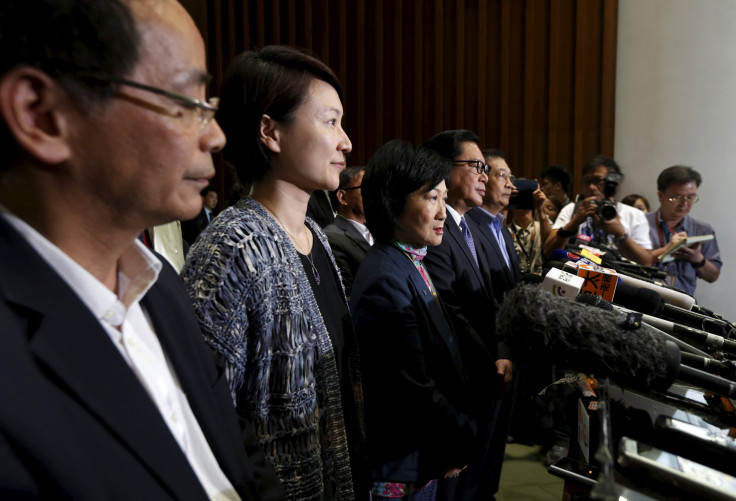Hong Kong Reform Vote: Pro-Government Lawmakers Explain Bizarre Walkout Moments Before Vote

HONG KONG -- Although the rejection of a Beijing-backed political reform bill by Hong Kong legislators Thursday was widely expected, one aspect of the vote was a surprise: a walkout by many of those in the pro-government camp in the city's Legislative Council, just moments before the crucial vote took place.
As a bell rang in the chamber, signaling lawmakers to cast their ballot, pro-government lawmaker Jeffrey Lam, of the Business and Professionals Alliance political party, asked the chamber's president, Jasper Tsang, for an adjournment “for further discussion," but the request was denied.
Viewers of the live coverage of the debate were then treated to the sight of about 30 of the pro-government legislators leaving the chamber. Not everyone departed, however, and in the end there were 28 votes against and eight for the proposal.
Local radio station RTHK reported that the walkout had been intended to create a lack of quorum, which would have prompted a delay in voting. Council rules state that a quorum cannot be less than half of all the 70 lawmakers, including the chamber's president -- in other words, 35 lawmakers.
After the bill's defeat, members of the pro-government camp offered explanations for the walkout, with Lam saying that his side wanted to delay the vote to give one more lawmaker, Lau Wong-fat, time to arrive.
Another pro-government lawmaker, Regina Ip, said: “It wasn’t that we didn’t want to vote, but we encountered some issues,” according to a Wall Street Journal report.
If reports that the walkout was a bid to deny the chamber a quorum are confirmed to be accurate, it appears the strategy was not communicated to everyone in the pro-government camp.
Liberal Party chairman Felix Chung, one of the eight pro-government legislators who stayed to vote yes, said: “I didn’t know what they were doing. Nor was I given advance notice of the walkout plan,” according to the South China Morning Post.
Even with a full contingent, the measure would have still been voted down, with 28 opposition votes enough to deny the government the majority it needed to pass the legislation.
Legislative Council president Jasper Tsang, a pro-Beijing veteran who stays neutral in debates, described the walkout as an “unfortunate accident,” but said its instigator “certainly owes the public an explanation,” according to the South China Morning Post.
© Copyright IBTimes 2024. All rights reserved.





















